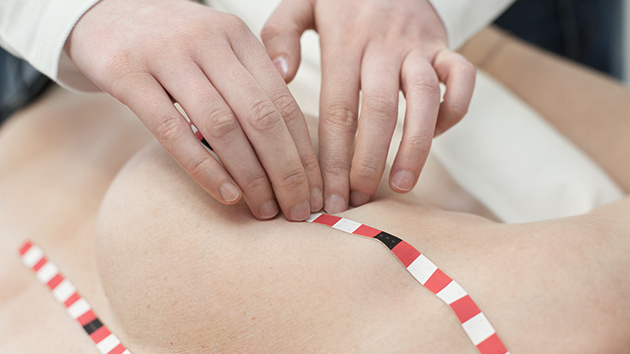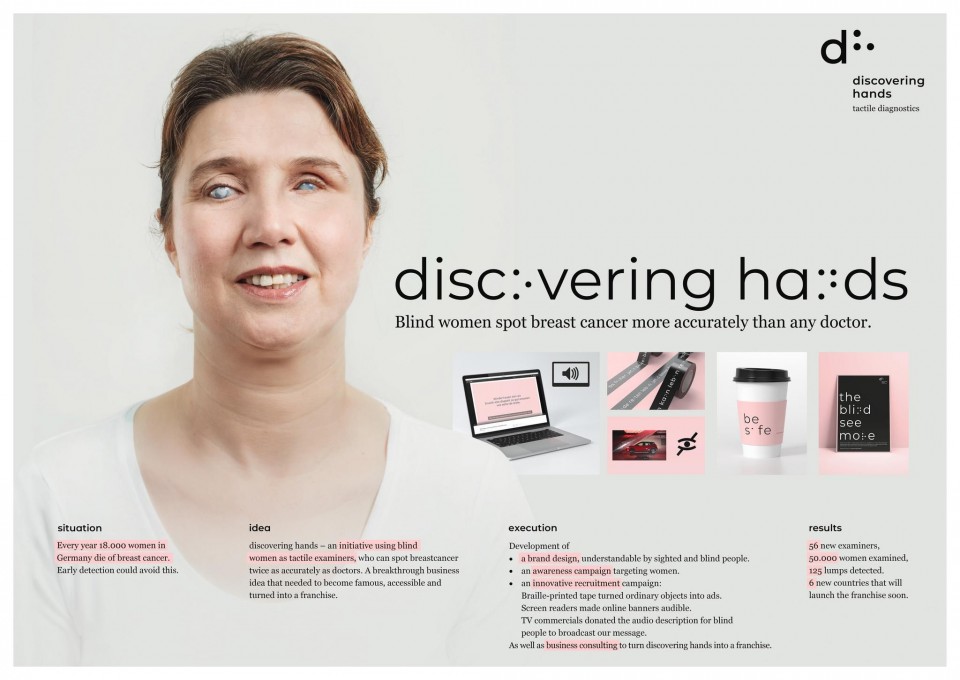
- Inspiring People -
- 3mins -
- 841 views
“Discovering Hands” trains blind women as experts in detecting breast cancer
Discovering Hands utilises the superior tactile perception of blind and visually impaired women to become Clinical Breast Examiners (CBEs), deploying them to improve palpatory diagnosis in the early detection of breast cancer.
Blindness is no longer a handicap but a gift, substantially contributing to saving lives
One out of eight women will develop breast cancer. In Germany, over 70,000 are diagnosed every year — for 18,000 it’s fatal. Early detection can save lives. A new method uses people with a remarkable ability, people who are twice as likely to discover even the smallest anomalies: blind people. Introducing Discovering Hands. The innovative concept focuses on the revolutionary idea of this new collaboration, combining the extraordinary tactile skills of blind women with the competence of medical professionals. Uniquely pairing the abilities of blind women with normally sighted people, blindness is no longer a handicap but a gift, substantially contributing to saving lives.

discovering hands® transforms a perceived “disability” into a capability
discovering hands® trains blind and visually impaired women to become Clinical Breast Examiners (CBEs), deploying them for the early detection of breast cancer.
The early discovery and treatment of breast cancer enables a less strenuous form of treatment and improves patients’ chances of survival. The clinical breast examination by the CBE is based on a specially developed, standardised and quality-assured concept of examination.
This innovative concept not only establishes a greater degree of certainty for detecting changes in the breast, but also facilitates an agreeable examination environment for women, with maximum attention and allocation of time.
In a nine-month training programme, blind and visually impaired women are trained as CBEs in qualified vocational training centres for persons with disabilities (Berufsförderungswerke) across Germany and examined by the North Rhine Medical Association.
Through this training, discovering hands® transforms a perceived “disability” into a capability and simultaneously makes a valuable contribution to enhancing the range of professional opportunities for visually impaired persons, while improving health care provision.
discovering hands® is a completely unique, innovative and globally unprecedented project that, using everyday clinical experience, not only improves the healthcare situation for patients and eliminates the fear of confronting the “spectre of breast cancer”, but also simultaneously creates social added value for persons with disabilities and, through a meaningful qualification measure, creates economic potential.
Originating in Germany, discovering hands® has, so far, not been implemented outside of the country, but there have been inquiries from 6 European and 2 Asian countries. Market studies are currently being carried out in China, Singapore and Austria.
In an initial quality study, it was determined that CBEs are able to detect up to 50% more and up to 28% smaller changes in the breast than doctors are able to.
Currently, a large scale clinical study to academically underpin these findings is being carried out in cooperation with the University Gynaecological Hospital at the University of Erlangen under the supervision of Prof. Dr. M.W. Beckmann.
Source: ZeroProject.org



